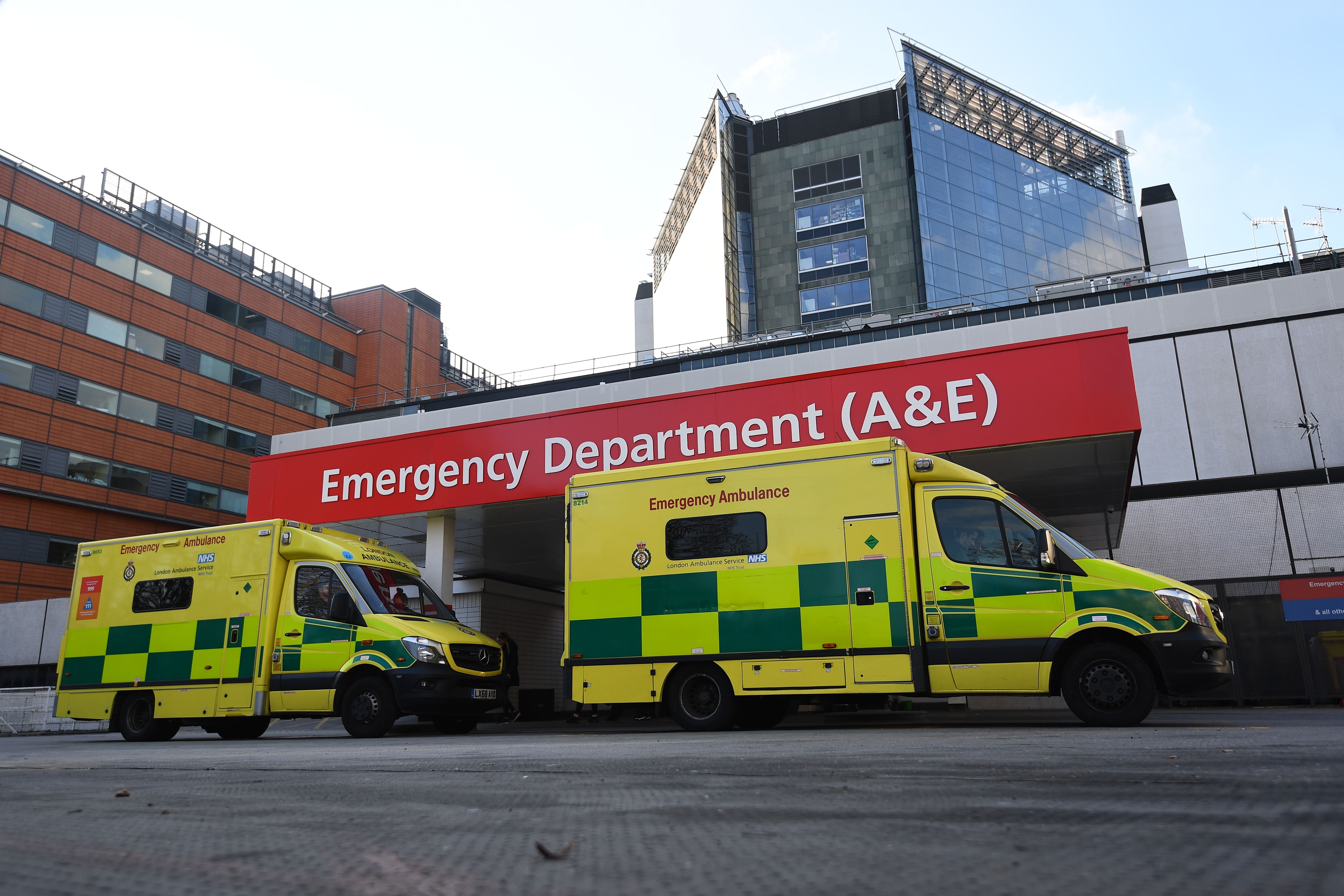More than 43,000 people dead by time ambulance arrived in 2022 – data
The figures for England were obtained through Freedom of Information requests submitted by the Liberal Democrats.

More than 43,000 people were declared dead by the time an ambulance arrived last year, according to statistics given to the Liberal Democrats.
The data, revealed following Freedom of Information (FOI) requests sent by the party to ambulance trusts in England, suggests an average of 120 people died per day before an ambulance reached them in 2022.
For the past three years, the figures suggest the number of people who have died before an emergency services team has reached them has stood at more than 43,000, indicating an annual trend.
The Lib Dems said the statistics were “truly shocking” and blamed “a Conservative government starving the NHS of the resources it needs”.
But the Department of Health and Social Care said it was “misleading” to imply a link between deaths and ambulance waiting times.
Officials at the department also pointed out that the annual headline figure had “not significantly changed over the three-year period”.
According to the analysis published by the Lib Dems on Thursday, 4,324 people were declared dead on arrival (DOA) by ambulance services in December.
This was an increase of 19% when compared to the same month the previous year.
The opposition political party received data back from seven of the 10 trusts it contacted.
Paramedics work extremely hard to save lives but have been let down by a Conservative government starving the NHS of resources
The Lib Dems are calling for a rescue plan for the NHS to help ease the pressure on ambulance services and stretched hospital resources.
They are proposing recruiting more GPs and bringing in a carer’s minimum wage to help plug staff shortages in social care.
Wera Hobhouse, the Lib Dem MP who submitted the FOI requests, said: “These figures are truly shocking.
“Paramedics work extremely hard to save lives but have been let down by a Conservative government starving the NHS of the resources it needs.
“The consequences are real and deadly.
“Chronic staff shortages in social care mean we cannot move people out of hospital beds, leaving desperate patients stuck in queuing ambulances.
The Liberal Democrats would fix this with a carer's living wage. This would help recruit and retain staff, ensuring there is proper capacity in our care system
“Ambulances that are then unavailable to go and help other patients in need.
“The Liberal Democrats would fix this with a carer’s living wage. This would help recruit and retain staff, ensuring there is proper capacity in our care system.
“We need urgent action now or we will face crisis after growing crisis.”
The FOI asked for the number of people pronounced dead on arrival by the ambulance trusts for each month of the years between 2018 and 2022.
The Lib Dems have shared the data it was given for the years 2020 to 2022.
Data was released from Yorkshire Ambulance Service NHS Trust, South Central Ambulance Service NHS Foundation Trust, North East Ambulance Service, South East Coast Ambulance Service, South Western Ambulance Service NHS Foundation Trust, London Ambulance Service NHS Trust and North West Ambulance Service NHS Trust.
The implication that these deaths are due to ambulance delays is misleading – the data does not show a link between deaths and ambulance waiting times and numbers have not significantly changed over the three-year period
The party said it did not receive data back from three trusts: West Midlands Ambulance Service University NHS Foundation Trust, East Midlands Ambulance Service NHS Trust and East of England Ambulance Service.
The Isle of Wight NHS Trust which runs the ambulance service on the island was not written to with an FOI.
Each ambulance trust replied using different metrics for measuring what it considered to be a patient who was dead upon the arrival of paramedics.
According to the data shared by the Lib Dems, the North West recorded the highest number of patients classed as dead on arrival in 2022 out of the seven responses, with 8,450 patients.
South East Coast Ambulance Service had the second highest, with 7,815.
The same service saw the number of DOAs encountered increase by more than a third when comparing annual December records.
Our priority is ensuring patients get the care they need and we are improving ambulance waiting times, which have substantially reduced from the peak of winter pressures in December 2022
A total of 1,022 DOAs were recorded in December 2022 compared with 762 in the same month in 2021.
It amounted to a 34% year-on-year increase for the month that features both Christmas and New Year’s Eve.
The breakdown of figures for December DOAs was not handed over by South Western Ambulance Service, which provided a year-by-year data submission rather than monthly.
A Department of Health and Social Care spokesman said: “The implication that these deaths are due to ambulance delays is misleading – the data does not show a link between deaths and ambulance waiting times and numbers have not significantly changed over the three-year period.
“Our priority is ensuring patients get the care they need and we are improving ambulance waiting times, which have substantially reduced from the peak of winter pressures in December 2022.
“Our Urgent and Emergency Care Recovery Plan will allow people to be seen quicker by scaling up community teams, expanding virtual wards, and getting 800 new ambulances on the road.
“This is on top of £750 million we have provided this winter to speed up hospital discharge and free up beds.”
Bookmark popover
Removed from bookmarks